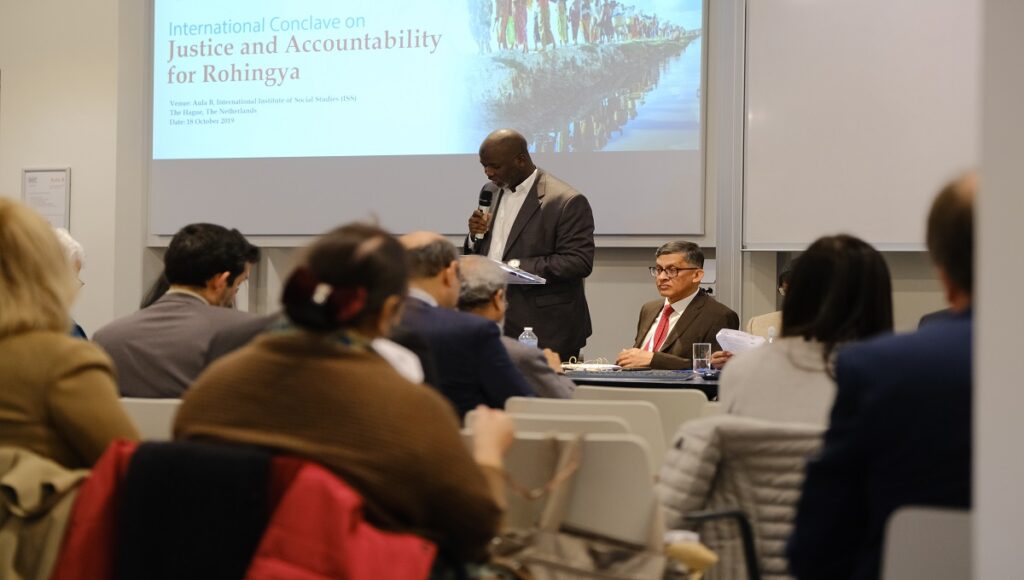Dhaka, Oct 18 (UNB) – International experts at a conclave in The Hague on Friday underscored the importance of the UN, relevant member states and regional bodies to each play a role in finding a long-term, viable and acceptable resolution to the Rohingya crisis.
The Hague conclave on justice and accountability for the Rohingyas brought together critical issues for consideration by the international community and sought steps to end the culture of impunity, apparently being enjoyed by the Myanmar authorities.
The experts took note of the abiding generosity and prompt humanitarian response by the Bangladesh government in support of the Rohingyas.
They pointed out that the actions of Myanmar must be recognised as “genocide”, and should not be allowed to be termed under vague terminology, said a media release on the event.
Bangladesh is currently hosting more than 1.1 million Rohingyas. Most of them fled here from their homeland in Myanmar’s Rakhine State after the military launched a brutal offensive targeting the mainly-Muslim ethnic minority.
Rohingyas and rights groups have accused the Myanmar army of rape, murder, torture, arson and loot – Myanmar denies the charges. Members of the minority are denied citizenship by Myanmar despite having lived in the country for generations.
In his keynote remarks, Gambia’s Minister of Justice Abubacarr Marie Tambadou stated that when he visited the Rohingya camp in Cox’s Bazar in early 2018, he could smell the stench of genocide from miles away; as it was all too familiar for him after a decade of interacting with the victims of the Rwandan mass rape, killings and genocide.
Other speakers echoed his views that to bring justice and accountability for the Rohingya, the focus needs to be shifted from individual responsibility to state responsibility.
The views of Canadian Prime Minister’s special envoy to Myanmar Bob Rae on progress on the issue of accountability were picked up by other members of the conclave.
Over the past 18 months quite a lot of progress has taken place but a lot more needs to be done.
The heightened value of the Report of the Advisory Commission on Rakhine State chaired by Kofi Annan was highlighted, as it offers insight not only to the Rohingya crisis but also other minority ethnic communities.
Some speakers lamented at the delay or even failure of the international community to respond in a timely manner to the genocide happening in Myanmar, which may have helped allowing the government to buy time.
The voice of consensus in the Conclave has been that short as well as long-term solution to the Rohingya crisis needs to be multifaceted and throughout this process, the voice and participation of the Rohingyas must be ensured.
The international conclave on Justice and Accountability for Rohingya was organized by Centre for Peace and Justice (CPJ), BRAC University in The Hague, the Netherlands, in partnership with Asia Justice Coalition and ISS.
It was moderated by Manzoor Hasan, the Executive Director of CPJ. Prof Syed Mansoob Murshed and Prof Inge Hutter of the Institute of Social Studies (ISS), Erasmus University Rotterdam, Prof Vincent Chang VC of BRAC University, Biraj Patnaik of Amnesty International’s South Asia Director also spoke in the inaugural session.




